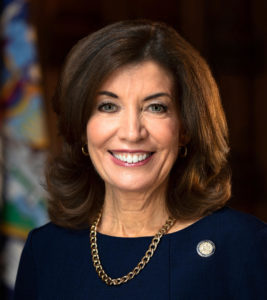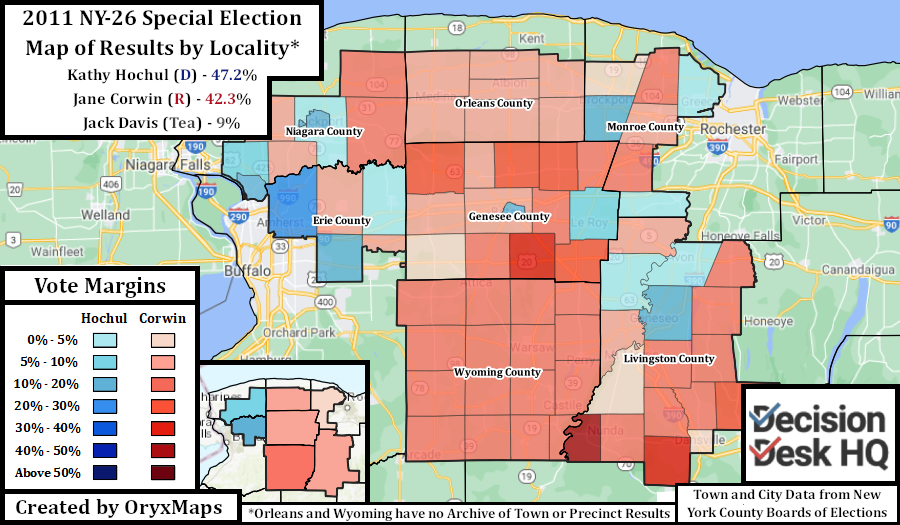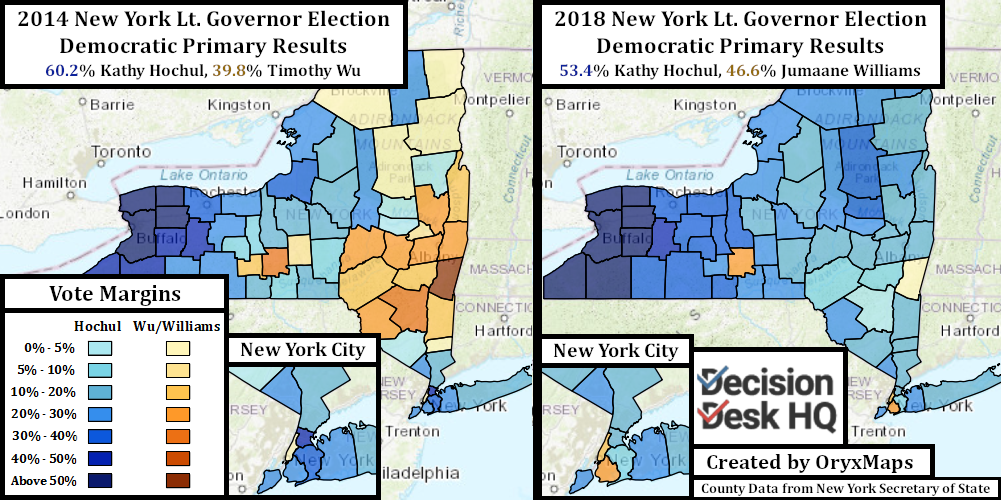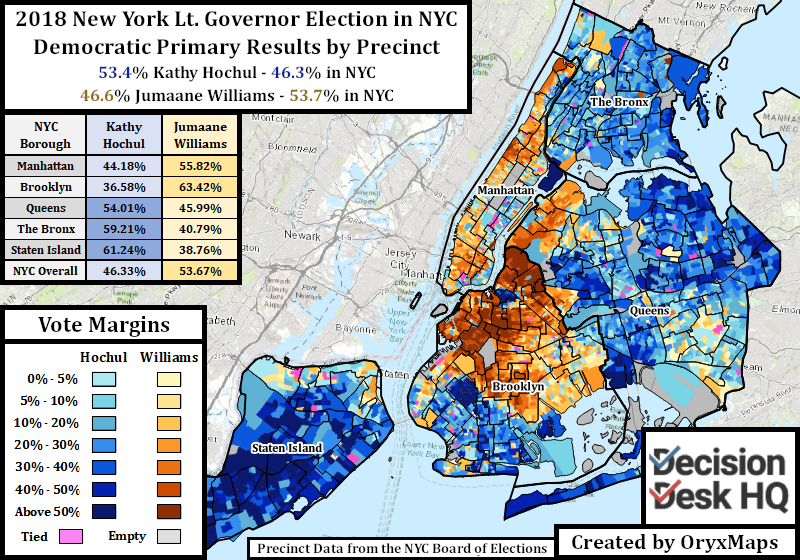
After several months of inquiry, on August 3rd New York’s Attorney General Letitia James released the report of the independent counsel charged with investigating the sexual harassment allegations against Governor Andrew Cuomo. The abhorrent conclusion that Cuomo sexually harassed at least eleven women prompted condemnation from almost every prominent Democratic official, including previously staunch allies and President Biden. Public polling found that a majority of New Yorkers disapproved of the Governor and supported his resignation or impeachment. On August 10th Cuomo announced that he would resign before the end of the month on August 24th.
One politician who waited until August to call for Cuomo to step aside is his legal successor and future New York Governor, Kathy Hochul. To avoid a conflict of interest, Hochul remained uncommitted to either side in the investigation, but the report’s conclusions convinced her that it was time to side with the rest of her party. She now ascends from her position as Lieutenant Governor to assume the full responsibility of the Gubernatorial office.
Kathy Hochul is a native of Buffalo on the shores of Lake Erie. She will become New York’s first female governor and the first governor from Upstate New York since Franklin Roosevelt, or even earlier depending upon the specific definition of the Upstate region. Hochul starts at a large disadvantage as a majority of New York voters either do not know who she is or have no opinion about her work as Lt. Governor. Cuomo purposefully kept Hochul in the shadow of his own profile, which now makes her an unknown successor.
From Buffalo to Washington
Hochul began her political career serving on the Town Board of Hamburg, a Buffalo city suburb. Before this time, Hochul spent time working as an activist, a partner at a law firm, and a legal counsel to several New York legislators. She served on this Town Board from 1994 to 2007. Hochul benefited from New York’s unique electoral fusion law which allows the same candidate to appear on and win votes from multiple ballot lines. The minor New York Conservative Party endorsed and provided their ballot line to Hochul in local elections, complimenting her pragmatic brand and allowing her access to voters of all political positions.
Erie County Clerk David Swarts appointed Hochul Deputy Clerk in 2003 during her time on the Town Board. When Swartz resigned to take a position in Governor Eliot Spitzer’s administration, Hochul found herself appointed by the governor to countywide office. During this time she notably opposed Governor Spitzer’s plan to allow undocumented immigrants to obtain a drivers license without producing a Social Security ID. Hochul gained brief statewide notoriety by declaring that she would arrest anyone who tried to utilize this system at Erie County’s offices. She won reelection to the county office for a full term in 2010, this time with the Independence, Working Families, and Conservative Parties’ cross-endorsements.
Hochul did not complete the four-year term to which the voters elected her. New York’s 26th Congressional Representative Chris Lee resigned in early 2011 after the public learned he tried to solicit sex from a woman he found through Craigslist. Hochul ran as the Democratic nominee for the open district – one of only four Empire State Congressional districts Barack Obama did not win in 2008. Some parts of NY-26 had not been represented by a Democrat in 40 years.

Voters elected Hochul in the 2011 special election by a five-point margin of 47.2% to 42.3%. Republicans blamed the loss on Tea Party candidate Jack Davis’s presence on the ballot. Davis won 9% and split the conservative vote in this Republican seat. Democrats however pointed to how the GOP put themselves in a position to lose the safe seat. Republican Jane Corwin should have won even with a vote split, but her commitment to unpopular policies such as future House Speaker Paul Ryan’s Medicare overhaul caused normally conservative voters to consider Hochul.
Hochul only served in Congress for 18 months – she lost the 2012 election to Republican Chris Collins by a 51% to 49% margin – but during that time she earned a reputation as an “Independent Democrat.” Hochul aligned with Democrats on most issues, including Medicare and the Affordable Care Act, but she sided with the GOP when desirable. For example, Hochul was one of 17 Democrats to vote with Republicans to hold Attorney General Eric Holder in contempt of Congress when his office failed to turn over documents related to Operation Fast and Furious. This vote additionally earned Hochul the NRA’s endorsement for her attempt at reelection in 2012.
Powerless in Albany
Andrew Cuomo selected Hochul to serve as his new Lieutenant Governor in 2014. Hochul was at the time working in the private sector after losing reelection, and Then-Governor Cuomo needed a Lt. Governor after the incumbent, former Rochester Mayor Robert Duffy, announced his intention to retire. The selection of Hochul maintained the Upstate-Downstate geographic pairing within the Democrat’s Gubernatorial ticket, and complimented the ideological composition of the cautious but liberal Cuomo administration.
The Governor’s endorsement does not guarantee one the position of Lt. Governor. New York uses the “shotgun wedding” approach to gubernatorial races where the Governor and Lt. Governor run independently of each other in the party primaries but campaign together on a joint ticket in November. This system occasionally forces together candidates who despise each other. Hochul however won both the 2014 and later the 2018 primaries to assume and maintain her position as Cuomo’s running mate.

Hochul’s brand in 2014 was inseparable from the Governor who promoted her, and this is reflected in the results of the 2014 primary. Hochul lost the same block of counties around Albany that Cuomo lost in his primary challenge from Progressive Zephyr Teachout. The 2018 Lt. Governor primary however saw Hochul stand for renomination on her own brand and merits. Hochul won with 53.3% of the vote against New York City Councilor and future NYC Public advocate Jumaane Williams. Hochul lost only two of the 55 counties north of New York City, but her Upstate domination was not an advantage. 66% of Democratic primary voters live in Downstate New York City or Long Island, and it was here the Upstate Hochul lacked a strong base of support. Williams’ coalition of African Americans, Progressives, and urban Liberals was enough to win Manhattan, Brooklyn, and keep the margins tight in the other three New York City boroughs.

There are no official executive powers associated with the position of Lieutenant Governor in the State of New York. The office’s only legal power — besides succeeding the Governor — is serving as President of the New York State Senate and breaking ties in that chamber, in the same way the Vice President of the United States breaks ties in the US Senate. There are however an odd number of State Senators in the Empire State, so ties are infrequent. Hochul additionally never presided over a Senate close to 50-50: The Independent Democrat Conference-Republican cooperative coalition held a majority in the chamber between 2014 and 2018, and the Democrats maintained a strong majority in the chamber after the 2018 elections.
The power of Hochul’s office depends entirely on the desire of the governor to delegate authority. Hochul did chair the state’s regional economic development councils, and lead Cuomo’s 2015 “Enough is Enough” campaign to combat sexual assault at universities, but these positions were minor. Cuomo purposefully kept Hochul outside his inner circle and utilized her as his on-the-ground liaison with local politicians.
Hochul never attended any of Cuomo’s much-publicized 2020 pandemic briefings, nor was she mentioned in his mid-pandemic memoir. Instead, she toured the state, attended formal events, spoke with local government officials, and oversaw ceremonies on the governor’s behalf. Hochul made a point of visiting every county in the state each year she served as Lt. Governor, even during the pandemic. Instead of videoconferencing with local administrations from Albany, Hochul drove to the various parts of the state and then attended virtual events alongside local officials. During this time in office Hochul shifted her public political positions closer to the Democratic mainstream. She for example supported legislation in 2018 to provide drivers licenses to undocumented immigrants, legislation very similar to what she had once opposed in Erie County.
Hochul’s tenacity quietly allowed her to build productive relationships with Democratic officials from across New York, but did not endear her to the outgoing Governor. Cuomo openly led the speculation that Hochul should leave Albany and run in the Special Election for her old Congressional seat following Republican Chris Collins’ conviction for insider trading in 2019, something she did not do.
Ambition and Resignation
Andrew Cuomo announced his resignation on August 10th, effective August 24th. His decision spares New York an arduous months-long legal battle over his impeachment. Hochul will officially become the Governor. Cuomo’s decision to confine Hochul to relative obscurity gives Hochul a unique position as an outsider untarnished by the harassment investigation, yet one that can leverage her experience as a state politician with knowledge on how to get things done in Albany.
Hochul now assumes the gubernatorial office during a period of crisis. The Coronavirus pandemic remains an issue. Even though New York’s population is among the most vaccinated in the country (57.9% fully vaccinated, 64.5% with one dose), and the state has fewer Coronavirus cases when compared to southern states, hospitalizations are still rising. The allegations against outgoing Governor Cuomo will not vanish. Five district prosecutors have requested evidence from the Attorney General’s office to open criminal investigations against Cuomo, investigations separate from any hypothetical political impeachment.
Hochul however will be New York’s first Democratic Governor in over 100 years to enter office alongside incumbent Democratic legislative majorities in both chambers. These majorities make the transition from Cuomo to Hochul potentially easier than any previous change of administration.
The future Governor now has at least ten months before the 2022 New York Democratic primary. Hochul developed strong ties with local politicians and the party’s donor networks through her liaison work for Cuomo, but her lack of personal recognition could expose her to primary challengers. Hochul however now has time to build a positive relationship with New York voters.
Hochul’s unique position as an Upstate Democrat gives her an effective lock on approximately 30% of the Democratic primary electorate, but she must correct her weaknesses in New York City in order to guarantee victory over any Downstate primary challenger. These challengers previously included: State Senator Alessandra Biaggi, outgoing NYC Mayor Bill de Blasio, NYC public advocate Jumaane Williams, Attorney General Letita James, Congressman Tom Suozzi, and many more – including perhaps Hillary Clinton! Cuomo’s resignation however disrupted this emerging field. Fewer challengers may desire to run against a new incumbent governor with a radically different temperament. Hochul now must prove that she can be an effective governor to avoid being remembered as a statewide seat-warmer.
Ben Lefkowitz (@OryxMaps) is a Contributor to Decision Desk HQ.